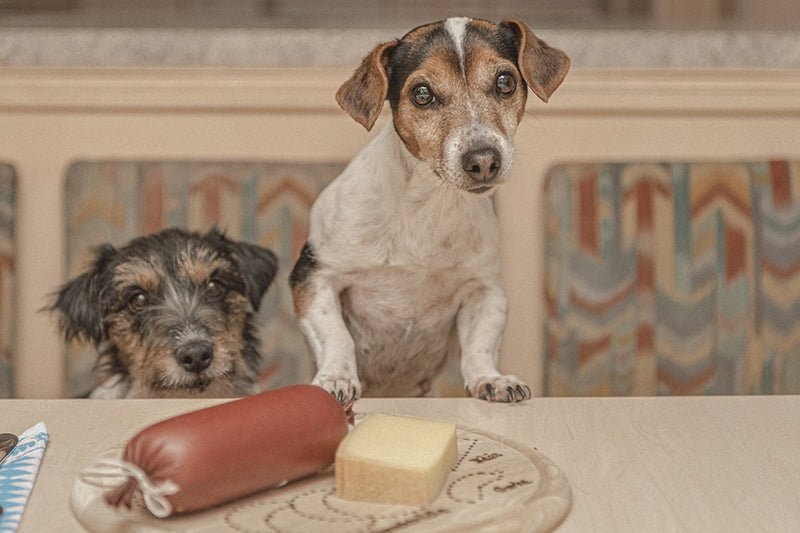
Your Dog Ate Cooked Bacon: What Should You Do Next?
Share
You just discovered that your dog ate cooked bacon and you're naturally worried about what comes next. Bacon, although delicious to humans, is not exactly the best thing for your dogs diet. In this comprehensive guide, well discuss the risks, symptoms to watch for, and what actions you should take immediately if your furry friend consumed cooked bacon.

Why Bacon is Harmful to Dogs
High Fat Content
Bacon is high in fat, which can be problematic for your pet. Ingesting too much fat can lead to pancreatitis, a condition where the pancreas becomes inflamed and stops functioning properly. According to studies from the Carolina Veterinary Specialists, even small amounts of high-fat foods can trigger this painful condition.
Salt Poisoning
A secondary concern is the high salt content in bacon. Salt poisoning can lead to symptoms like excessive thirst, vomiting, diarrhea, tremors, and seizures. The WebMD suggests that salt toxicity can even be fatal in severe cases.

Immediate Steps to Take
Assess the Situation
First and foremost, remain calm and assess how much bacon your dog actually ate. If it was just a small piece, the chances are that your dog may only experience mild discomfort such as an upset stomach.
Contact Your Veterinarian
For larger quantities, you should immediately contact your veterinarian for advice tailored to your specific situation. Even if your dog appears to be fine, its better to be on the safe side. Veterinarians can provide guidance on whether or not you should bring your dog in for an examination.

Monitoring Your Dog's Symptoms
Gastrointestinal Issues
Keep an eye on your pet for any signs of gastrointestinal distress such as vomiting, diarrhea, or bloating. Monitor these symptoms closely and consult your vet if they persist for more than a few hours.
Pancreatitis Signs
Leaning from experts on GoodRx, be alert for symptoms of pancreatitis such as a hunched back, loss of appetite, fever, and abdominal pain. Immediate veterinary care is crucial if your dog displays these signs.

Preventing Future Incidents
Secure Food Items
Dogs are naturally curious, and human food can be a tempting target. Make sure to keep harmful foods out of reach. For more tips on securing food items, you might find this read about dogs grass eating habits informative.
Healthy Alternatives
Instead of giving in to those puppy eyes asking for bacon, opt for healthier treats that are safe for dogs. Fruits like apples, blueberries, and bananas are nutritious choices. For more suggestions, you can refer to this external guide on healthy treats for dogs.
Conclusion
Finding out that Your Dog Ate Cooked Bacon can be alarming, but armed with the right information and quick action, you can ensure the safety and well-being of your furry companion. Always consult with your veterinarian, monitor symptoms, and take preventative measures to avoid future scares. After all, your dogs health should be a priority.
FAQs
Is a small amount of bacon harmful to my dog?
A small amount of bacon is less likely to cause severe health issues, but it can still upset your dogs stomach. Its always best to avoid giving your dog any bacon.
What should I do if my dog shows signs of pancreatitis?
If you notice symptoms like vomiting, diarrhea, loss of appetite, or a hunched back, seek immediate veterinary care.
Are there any safe human foods I can give my dog instead?
Yes, fruits like apples, blueberries, and bananas are safe and nutritious alternatives to give your dog as treats.
As an Amazon Associate, I earn from qualifying purchases.
